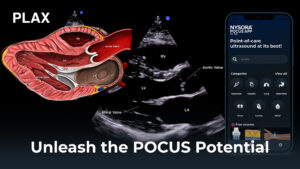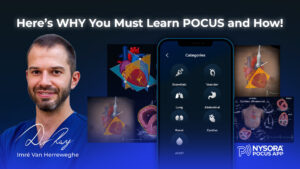Explore NYSORA knowledge base for free:

In this insightful exploration, we delve into the underappreciated struggles and challenges that doctors face in the high-pressure medical field, further amplified in today’s digitally connected era. Doctors face significant challenges due to the rigors of their profession. The path to becoming a doctor requires years of intensive study and training, including undergraduate education, medical school, and residency. This prolonged period often leads to substantial stress, potentially triggering various physical and mental health issues. Once established in their careers, doctors contend with demanding, irregular schedules, marked by long hours and on-call shifts. They operate under intense pressure, often making life-or-death decisions, contributing to high-stress levels and the risk of burnout. The workload can leave them with little time for self-care activities such as exercise, proper nutrition, or adequate sleep, paving the way for health issues such as obesity, heart disease, high cholesterol, and other chronic conditions. Balancing work and personal life is another significant hurdle for doctors. The relentless work schedule often infringes on family time and personal interests, leading to emotional stress and strained relationships, impacting their mental health. Financial stress is another burden, particularly for those starting their careers. The high cost of medical education frequently results in substantial student loan debt. In contrast to peers who joined the workforce directly after high school or college, doctors often face a longer journey to financial stability, adding to their stress levels. Even though they are healthcare professionals, doctors often find it hard to prioritize their own health checkups and preventive care. This can result in delayed diagnosis and treatment of potential health issues. The digital age, while offering several conveniences, presents additional challenges for doctors. Online training, digital compliance, and electronic medical record systems, while streamlining some aspects, add to their workload. Digital advancements have blurred the lines between […]

We recently sat with Dr. Van Herreweghe – Dr. Ray – to discuss POCUS as the increasingly popular diagnostic tool that enables doctors to quickly and accurately diagnose various conditions at the patient’s bedside. This week, we continue the conversation on the app we designed together to empower healthcare professionals with advanced guidance on POCUS wherever they go. What makes this app different from the rest of the solutions on the market? Simply put, it’s a step-by-step, easy-to-digest guide to scanning in your medical practice. While many apps are primarily designed for professionals already well-versed in Point-of-Care Ultrasound (POCUS), we have expanded our scope to cater to beginners aiming to engage with POCUS as well. Consequently, our app provides an easily digestible, step-by-step guide to navigating the complexities of scanning. Additionally, our app includes the coveted NYSORA illustrations, animations, and comparisons between sonoanatomy and reverse ultrasound anatomy, elements that significantly aid in the learning process and understanding. This holistic combination makes our app uniquely equipped to serve a broad spectrum of users, from novices to seasoned professionals. How did you create the curriculum? The market lacks a standardized pathway for mastering Point-of-Care Ultrasound (POCUS), with recommendations varying widely across different societies. Drawing on our extensive experience in regional anesthesia, we saw a dire need to establish a more structured, evidence-based approach to learning POCUS. As a result, we’ve developed a curriculum that leverages scientifically grounded educational tools, aiming to provide a consistent and effective learning journey for POCUS mastery. This standardized methodology sets us apart, as we strive to fill the gaps left by current market offerings. The resulting curriculum is designed to cater to a broad spectrum of medical professionals, including critical care physicians, emergency physicians, anesthesiologists, internists, and those from numerous other disciplines seeking to enhance their clinical […]

A healthy patient in his 40s is admitted to ICU following a severe motor accident with serious deglovement of the lower limb necessitating advanced wound care in the burn unit. The patient inexplicably collapses two weeks after admission. The intensivist is invited to the bedside for consultations. Clinical evaluation of the patient reveals tachycardia, hemodynamic shock, and a mildly raised temperature. The ultrasound machine is used to perform a Point-of-Care Ultrasound (POCUS) assessment for the origin of the shock. Swiftly, a massively dilated right ventricle is detected, suggestive of pulmonary emboli – a thrombus obstruction. The situation deteriorates and suddenly the patient arrests. Resuscitation was started and the patient was brought to the operating theater for cloth removal by pulmonary thromboendarterectomy. Without POCUS, Dr. Van Herreweghe – Dr. Ray argues, the cause of hemodynamic shock would have been unclear. And further imaging such as a CT scan would have required transportation. The patient was too unstable to get transport, and without POCUS, chances are the patient would not have survived. A Conversation with Dr. Ray We recently partnered with Dr. Ray on POCUS. He is an anesthesiologist and critical care physician and he explains that the transition from regional anesthesia into POCUS is a natural step that considerably changes your practice. Therefore, we designed an app together to empower healthcare professionals with advanced guidance on POCUS wherever they go. We sat down with him to discuss POCUS, its history, and NYSORA’s role in the app publication. Read the interview below. What is POCUS? POCUS is a diagnostic tool revolutionizing healthcare by enabling doctors to quickly and accurately diagnose various conditions at the patient’s bedside. POCUS has become increasingly popular in recent years, but its history dates back several decades. How did POCUS evolve over the years? The term “POCUS” was […]